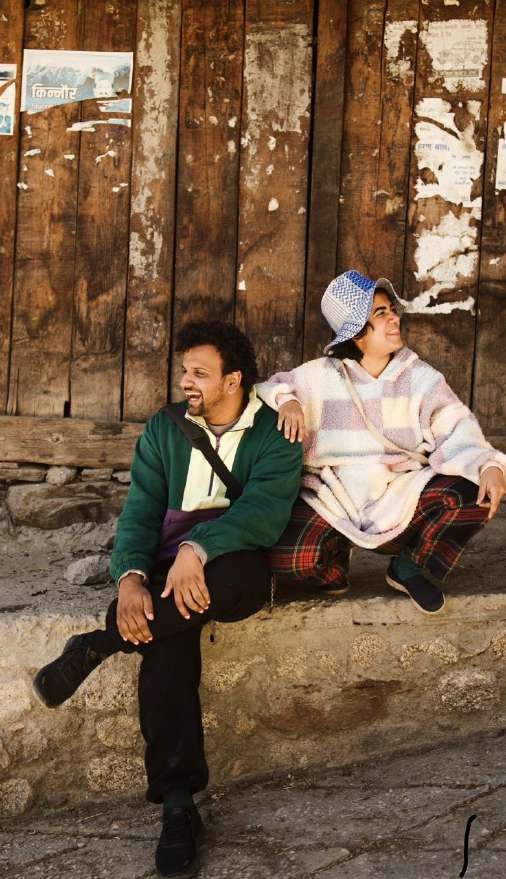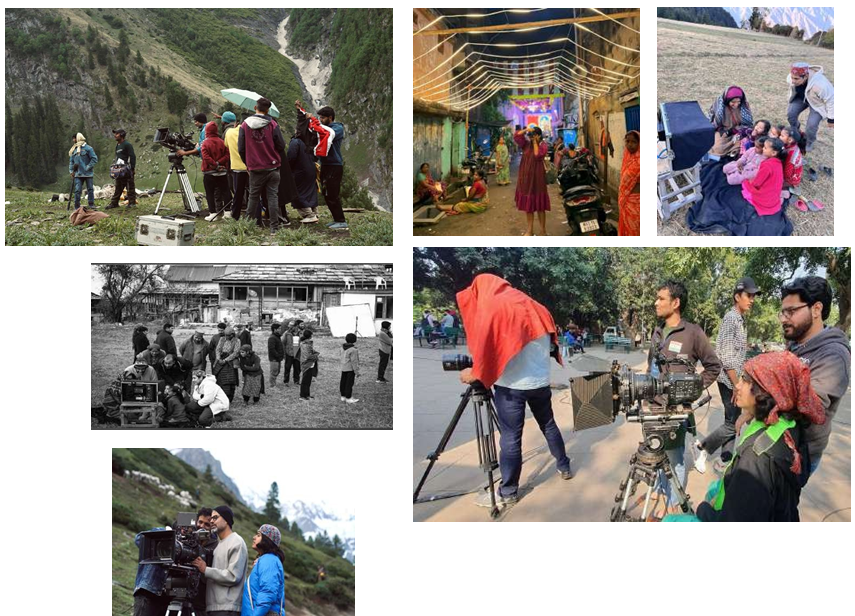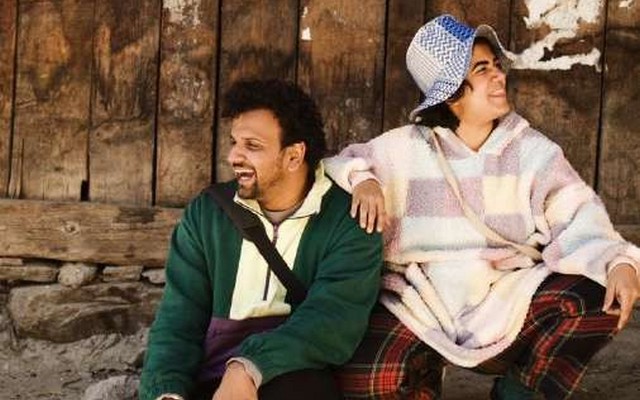Inside the soulful storytelling of Fiza and Dipankar—where cameras don’t chase fame but cradle truth.
Fiza’s voice flickers with warmth: “Class 3 or 4—our family vacations to Manali and Mussoorie. We carried a roll camera. You had to wait for the negatives, remember? That anticipation, that joy… it was magic. Those photographs still live in our home.”

Dipankar recalls his moment of early revelation:
“Class 6. I was obsessed with the way people felt around each other. There’s a photo of me draped in three new wedding outfits, posing like a king.
Aham Brahmasmi—I am the universe. Our childhoods weren’t perfect, but they were whole.”
From street theatre at Chitkara University to acclaimed festival circuits, Dipankar’s path has always felt carved by something unseen.
“I led our nukkad natak team—Christ, IITs, everywhere. But I knew I couldn’t be an engineer. I was meant to direct.”
Fiza adds, “There was no business model. Just a knowing. ”
When it came time to name their first film collective, Dipankar had a spark: “Nazariya. Everyone sees the same thing differently. That stayed.”
I love Sukoon,” Fiza says with the softness of slow mornings. “There’s a French phrase—Il dolce far niente— the sweetness of doing nothing. If you can enjoy stillness, you’ve arrived.”
“In a world that
rushes, they
pause. In a world
that shouts, they
whisper.”
Dipankar recalls filming in Kashmir:
“We met a girl in Class 7—she told us, main doctor banungi. Her elder sister had to stop studying after Class 8. That ache, that hope. It wasn’t scripted. It was sacred.”

They pause, holding space for fragile regions and fading futures. “May their dreams not burn,” Fiza whispers.
“Teams change,” Dipankar smiles, “but every person adds a thread. In our feature film, the credits rolled with 500 names. We honour each one. This is not a lie factory. We can’t afford that.”
Fiza shares a memory:
“A yellow taxi driver once told us he dreams of taking his family on a road trip. But he’s been driving endlessly for 30 years. People see themselves in these stories.”
“Being viral? Never the goal,” Fiza asserts. “Impact over influence. Always.”
Dipankar nods: “We say no more than we say yes. But when we say yes, it’s love. Whether it’s a documentary by an Australian filmmaker or Vikas Chawla’s millet-based revolution—it has to move us.”
Fiza, who edits most of their work, often marvels at her own evolution: “That was me? Really? Growth happens quietly. Through unlearning.”
Dipankar adds: “Faith. That’s all. In the unknown. In surrender. In the unfolding.”
“We walk aimlessly,” Dipankar says. “Any city, town, or village—we wander. That’s where stories live. Eavesdropped from chai stalls and temple steps.”
Fiza smiles knowingly, “Dishonesty in film is like spoiled food. You know. And the audience knows.”
“I once made a list,” Dipankar confesses. “Of people who doubted me. I wanted to prove them wrong. Now? I don’t care to.”
For both Fiza and Dipankar, Banaras is a reset button. “We spend 10–15 days there every year. Manikarnika Ghat… the pyres never stop.”
Fiza shares a line from her father: “Shamshan is the last university. It teaches you everything you forget in the rush of life. When our work becomes too heavy, it’s no longer art—it’s a burden. That’s when we know: it’s time to let go.”
“Sudarshan, a boy at Manikarnika,” Dipankar recalls. “He’s been burning pyres since he was six. ₹100 a day. No school. But he plays the damru and sings like the wind. He calls corpses puppets of Shiva. And he loves Virat Kohli.” They pause, moved by memory. “That kind of soul—he stays with you.”
“Everyone has a nazariya—a way of seeing,” Fiza says gently. “Ours just happens to include a camera.”
Dipankar laughs, “God laughs when we make plans. We’ve learned to show up. Karma karo, the rest unfolds.”
Fiza concludes, “We’re not a production house. We’re a listening space. A sacred pause. We’re not in the race of being famous. We want to be true.”
As I leave the quiet, soulful den they call a studio, I realize—this wasn’t an interview. It was an exhale. A gentle undoing.
Fiza and Dipankar don’t make films. They make space. For truth. For tenderness. For stories that would’ve otherwise gone unheard. Their lens may be quiet— But its echoes? Thunderous.


